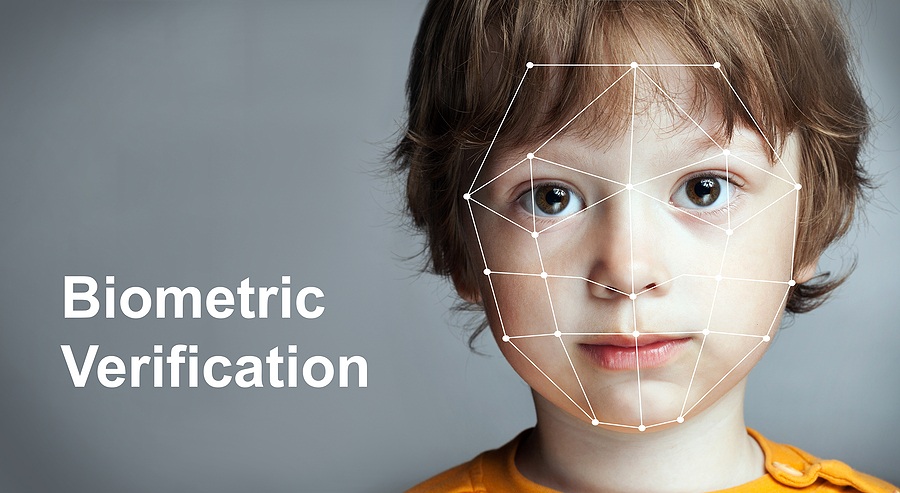by Brian Shilhavy, Health Impact News:

The FTC (Federal Trade Commission) of the federal U.S. Government is considering allowing businesses to use biometric facial scans of children under the age of 13 as “a new mechanism for obtaining parental consent.”
The Federal Trade Commission is seeking comment on an application from the Entertainment Software Rating Board (ESRB) and others for a new mechanism for obtaining parental consent under the Children’s Online Privacy Protection Act Rule.
TRUTH LIVES on at https://sgtreport.tv/
ESRB, which currently operates a COPPA safe harbor program, was joined in its application by Yoti, a digital identity company, and SuperAwesome, which provides technology to help companies comply with parental verification requirements. The companies have requested approval for the use of “Privacy-Protective Facial Age Estimation” technology, which analyzes the geometry of a user’s face to confirm that they are an adult.
Under the COPPA Rule, online sites and services directed to children under 13 must obtain parental consent before collecting or using personal information from a child. The Rule lays out a number of acceptable methods for gaining parental consent but also includes a provision allowing interested parties to submit new verifiable parental consent methods to the Commission for approval.
In a Federal Register notice, the FTC is seeking comment on a number of questions related to the application including whether the proposed age verification method is covered by existing methods; whether the proposed method meets the requirements under the COPPA Rule; and whether the proposed method poses a privacy risk to consumers’ personal information, including their biometric information.
The public will have until August 21, 2023 to submit a comment. After they are submitted, comments will be posted to Regulations.gov.
NOTE: Publication of this Federal Register notice is required by the Rule and does not indicate Commission approval or endorsement of the program. The Commission has 120 days to review proposed verifiable parental consent methods and must set forth its conclusions in writing. (Emphasis mine. Full Press Release.)
As the FTC noted in this press release, “Under the COPPA Rule, online sites and services directed to children under 13 must obtain parental consent before collecting or using personal information from a child.”
So are parents of children under the age of 13 the ones complaining about online sites collecting data on their children and petitioning the FTC to protect their children?
No, businesses are the ones petitioning the FTC to allow face scans of children under the age of 13, allegedly as an “age verification” system.
US seeks comment on age-estimation idea to protect children, Yoti requests approval
Businesses are asking U.S. regulators to approve facial age estimation as a tool for segregating people online by age and, in turn, the government is seeking comment on the idea.
The businesses are digital ID software company Yoti, Epic Games subsidiary SuperAwesome and the Entertainment Software Rating Board. They want the Federal Trade Commission to allow online content and services firms to rebuff children by using software that analyzes facial biometrics with a degree of privacy.
Specifically, the three petitioners want it to be legal for companies to add the age-estimation software to other tools the industry can use under the federal Children’s Online Privacy Protection Act, or COPPA. (Full article.)
When corporate America and the U.S. Government promote a new solution to an alleged problem, we need to always look and see what this alleged “problem” is to justify some new government intervention.
So what exactly is the “problem” with children that the Big Tech companies and the U.S. Government now want to start scanning the faces of children in order to “verify” their age?
Here is an article published earlier this month (July, 2023) that gives an example of this “problem.”
E-scooter fatality shows gap in remote ID check process for age restrictions
The unfortunate death of a 12-year old boy in England has highlighted the difficulties with enforcing age restrictions using remote processes, and raised the possibility that biometric authentication may be more widely needed.
The e-scooter rented by the youth was supposed to be restricted to riders 18 years and above, but a 14-year old friend of the boy transferred an account with e-scooter rental company Voi to him using a verification code sent to the mobile device it was created on, the BBC reports. (Full article.)
The death of a 12-year-old boy is tragic, no matter what the cause, but does this single incident signify a growing threat to children under the age of 13? Does it compare to how many children this age die in car accidents, drown in a swimming pool, or die after receiving a vaccine or other pharmaceutical product?
I think there are far more serious issues facing children today that parents need to be concerned about, and many of those issues will not be solved by scanning the faces of America’s children to “verify” their age.
For example, there are many situations that put children in danger that are “legal” where they currently do not need their parents’ consent.
Read More @ HealthImpactNews.com





